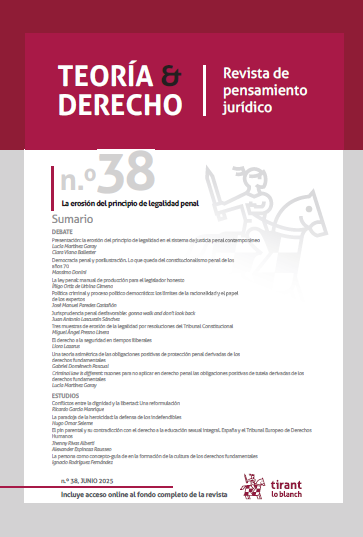An asymmetric theory of positive obligations of criminal protection derived from fundamental rights
DOI:
https://doi.org/10.36151/TD.2025.123Keywords:
Human rights, positive obligations, criminal law, principle of proportionalityAbstract
Several constitutional and international courts have declared that fundamental rights entail positive obligations for the State to protect them by means of criminal law, that is, by imposing penalties for actions and omissions that seriously violate them, investigating such actions and omissions, prosecuting the guilty and punishing them. This paper examines the criticisms this case law has faced, explains the reasons that justify such positive obligations and points out that there are some asymmetries between the fundamental rights to be protected through criminal law and the fundamental rights that citizens have against criminal prosecution and punishment. These asymmetries concern: the need for constitutional safeguards, the deference that the courts should show when determining whether the State has respected these rights, the obligation to observe certain procedural rules to limit them, and the legal consequences of their violation.
Downloads
Downloads
Published
Issue
Section
License
Copyright (c) 2025 Teoría & Derecho. Revista de pensamiento jurídico

This work is licensed under a Creative Commons Attribution-NonCommercial-NoDerivatives 4.0 International License.





















